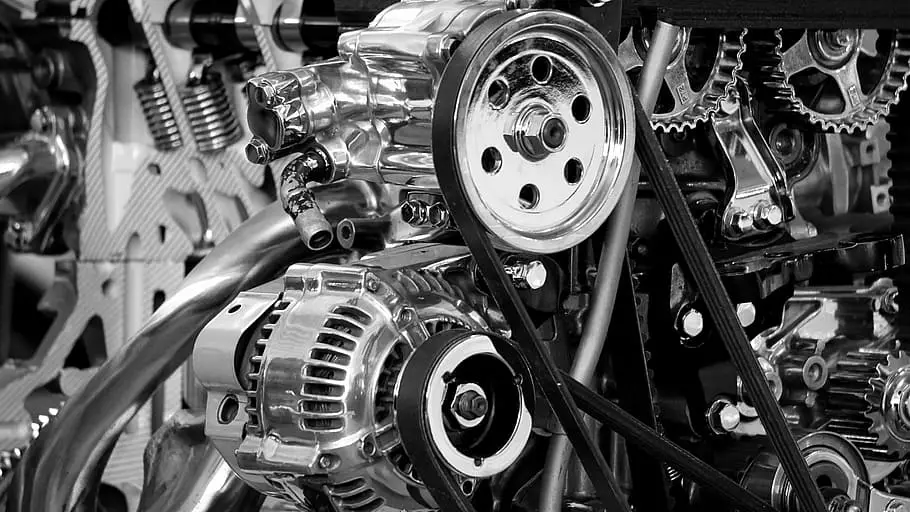When your car’s air conditioning is not functioning as it should, understanding how to tell if AC compressor clutch is bad is vital. This detailed guide will walk you through the process of diagnosing and addressing problems with your AC compressor clutch, enabling you to pinpoint the issue with confidence.

Table of Contents
Key Signs Your AC Compressor Clutch Might Be Failing
Before you start examining your car’s AC system, it’s essential to familiarize yourself with the symptoms that indicate a potential issue with the AC compressor clutch. Noticing these early signs can prevent more significant problems down the line. Let’s break down each symptom and understand why they occur:
Reduced Cooling
The most glaring indication of a faulty compressor clutch is a decrease in the cooling efficiency of your AC. When the clutch is unable to engage the compressor properly, the AC system cannot circulate the refrigerant to cool down your car. This issue might result in your car taking a considerably longer time to reach the desired temperature, or it might not cool down at all.
Unusual Noises
A properly functioning compressor clutch operates quietly. If you start hearing noises like squealing, rattling, or grinding, it often means the clutch is worn out or has a mechanical issue. These sounds emerge due to the friction created by loose or damaged components, signifying that a check is overdue.
Inconsistent Operation
If the AC emits cold air intermittently or the temperature fluctuates drastically, it’s a sign of a failing clutch. A malfunctioning clutch might engage and disengage sporadically, leading to an unstable operation of the AC system.
Visible Damage
At times, the problem with the clutch is apparent upon a simple visual inspection. You might notice signs of wear and tear, such as cracks, rust, or a burned smell emanating from the clutch. These visible signs indicate that the clutch is in bad shape and needs attention.
Check out these other related articles…
AC Compressor Vibration at Idle: Step-by-Step Solution Guide
AC Compressor Enclosure: Your Ultimate Guide
Used AC Compressor vs New: A Detailed Comparison
Installing a Used AC Compressor: Step-by-Step Guide
Can a Bad AC Compressor Cause Rough Idle? Detailed Answer
Steps on How to Tell If AC Compressor Clutch Is Bad
To confirm whether your AC compressor clutch is in bad shape, you need to perform a series of diagnostics. Here we detail a process that will guide you on how to tell if AC compressor clutch is bad even if you are not a technical expert. Remember, safety comes first; ensure the engine is off when you are working close to the engine area:
Visual Inspection
Start with a detailed visual inspection. Ensure the vehicle is off, open the hood, and locate the AC compressor — a pump-like unit attached to the engine. The compressor clutch is found on the outer end of the compressor.
Check for any visible signs of wear, including cracks, rust, and other damages. A well-functioning clutch should have a minimal gap between the pulley and the clutch disc.
Turn on the AC
Now, start the car and turn the AC to the maximum setting. Watch the compressor clutch as the AC runs; it should engage and spin along with the compressor. If it doesn’t engage or it engages and disengages erratically, this is a sign that there is a problem with the clutch.
Listen for Noises
While the AC is running, listen for any unusual noises. If you hear squealing or grinding noises, it indicates a problem within the clutch mechanism. These sounds usually represent friction in the components, which occurs due to the wearing out or loosening of parts.
Test with a Voltage Meter
If you are comfortable using a voltage meter, this step will help you determine the electrical condition of the clutch. Disconnect the electrical connector that leads to the clutch.
Using a voltage meter, check if the clutch is receiving power when the AC is turned on. Lack of power indicates electrical issues that might be causing the clutch to malfunction.
This AstroAI Multimeter Tester listed on Amazon can be used to test your clutch’s voltage.
Seek Professional Help
In case you are unable to diagnose the issue yourself or feel unsure about the diagnostic process outlined above, it is advisable to take your car to a professional mechanic. They will have the necessary tools and expertise to precisely identify and fix the problem, ensuring your car’s AC system functions optimally.